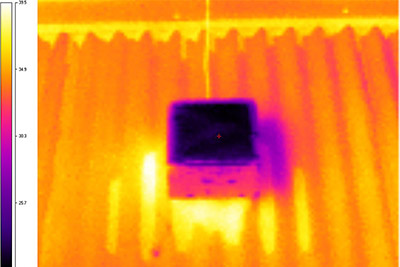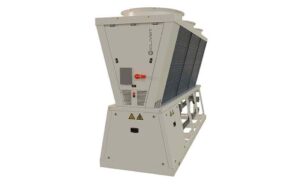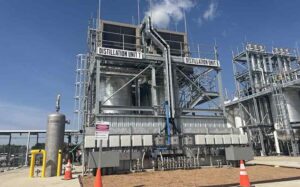Roof that stays cooler than ambient
2nd June 2015
AUSTRALIA: Scientists claim to have developed a roofing surface that stays cooler than the ambient air temperature even under full summer sun.
The development by a research team from the University of Technology Sydney (UTS) would have the potential to reduce both the heat island effect in urban areas and peak power demand from air conditioning.
The study by Dr Angus Gentle and Prof Geoff Smith has reported the results from what is described as a coated polymer stack – a combination of specially chosen polyesters on a silver layer.
“We demonstrate for the first time how to make a roof colder than the air temperature around it, even under the most intense summer conditions,” Smith said.
“Roofs heat up by absorbing sunlight, so darker roofs can get very hot. Even white roofs still absorb enough sunlight to warm up by 9°C to 12°C.
“This new surface, however, stayed 11° or more colder than an existing state-of-the-art white roof nearby because it absorbs only 3% of incident sunlight while simultaneously strongly radiating heat at infrared wavelengths that are not absorbed by the atmosphere.
“Furthermore the plastic materials used for the demonstration were available commercially and potentially suited to use on basic roofing.”
Professor Smith said that cooling a roof below ambient air temperature had up until now been “an elusive target”.
“The added feedback benefits from cool roofs are not yet widely appreciated, but recent reports have shown they are substantial. Examples include ventilation with cooler air and higher performance of rooftop air conditioning installations.”
The test roof was placed above a busy street on top of the UTS Faculty of Science building with a clear view of the sky and no shadowing.
Data was collected for an unprotected new surface and one aged over several days in a polluted outdoor summer environment for assessment of the impact of the build-up of dust and grime.
Professor Smith said the surface maintained its high performance in all conditions. “Extensive dew formation is inevitable for a super cool roof and dew drops precipitate dirt. This roof site being 25m above a busy city transit road was a stern test. Results show that excellent thermal performance can be maintained.
The paper, A Sub-ambient Open Roof Surface Under the Mid-summer Sun, is available from Advanced Science online as an open access article.







